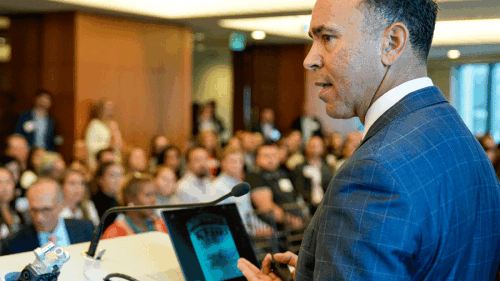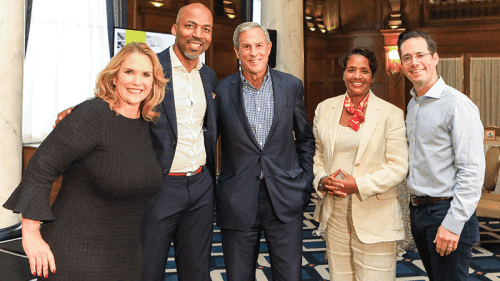Like so many people these days, my mobile phone and iPad have become a primary link to friends and family. So, as the rain and wind from Hurricane Sandy lashed at my house in late October, I could track the storm’s effects through my Facebook network. We were getting off easier than expected in the Washington, D.C., area, where I live. But a cousin near Philadelphia worried about rising water inching toward her house. One friend relayed that her college-student daughter was safe in lower Manhattan. And, ominously, there were no updates being posted from the folks in New Jersey; their connections apparently were down. We live in such a connected age that we can monitor events happening in real time across a multistate corridor—at least as long as our phones—and the cell towers—stay charged.
We chose the theme of this issue, Connect, about a year ago, with no way of knowing how relevant it would be in the wake of Hurricane Sandy, which demonstrated vividly how much connection matters. Sandy severed critical connections, shutting down New York City’s bridges and tunnels, cutting off electricity across a huge swath of the Mid-Atlantic, and interrupting cell phone and internet services in the most severely hit areas. Severe weather has a tendency to do such things, wherever it erupts. You will find a photo essay on some other highly disruptive events beginning on page 40. Looking through these photos I was struck by how scenes of blacked-out lower Manhattan resembled the blacked-out Ginza shopping district in Tokyo following Japan’s earthquake and tsunami in 2011.
What distinguished Hurricane Sandy for those who are interested in the responsible use of land was a connection between this event and the future. We have seen a demonstration of what high seas can do to a major coastal city such as New York. Now we must examine what cities can do to become more resilient in the face of such events, which many experts predict will become more frequent and even more severe. ULI will be facilitating connections among the best thought-leaders in land use to address these critical issues. Urban Land welcomes you to contribute your thoughts, along with examples of ways you are already addressing resilience through your work. Send your comments to urbanland.uli.org, and we will add them to the mix.
Many pages of this issue are devoted to our annual look at university-level real estate programs. It’s not meant to be a comprehensive directory or a ranking. Rather, writer Douglas R. Porter examines trends in education, with close-ups of several institutions. He finds that schools are broadening their students’ educations by going beyond the business-school approach and bringing in elements of design and environmental issues, among others.
As 2012 draws to a close, we also have good news to report about an economic recovery in real estate markets, through the Emerging Trends in Real Estate report published by ULI and PwC. This long-running annual survey of high-level real estate practitioners indicates that most of them anticipate better markets, and a better climate for real estate investment, in 2013. This issue’s story, which begins on page 48, focuses on the United States. In the January/February issue we will round out the picture with Emerging Trends reports on Asia and Europe.
With the rest of the ULI and Urban Land staff, I wish you a warm holiday season and a bright and prosperous new year.
Elizabeth Razzi
Editor in Chief




